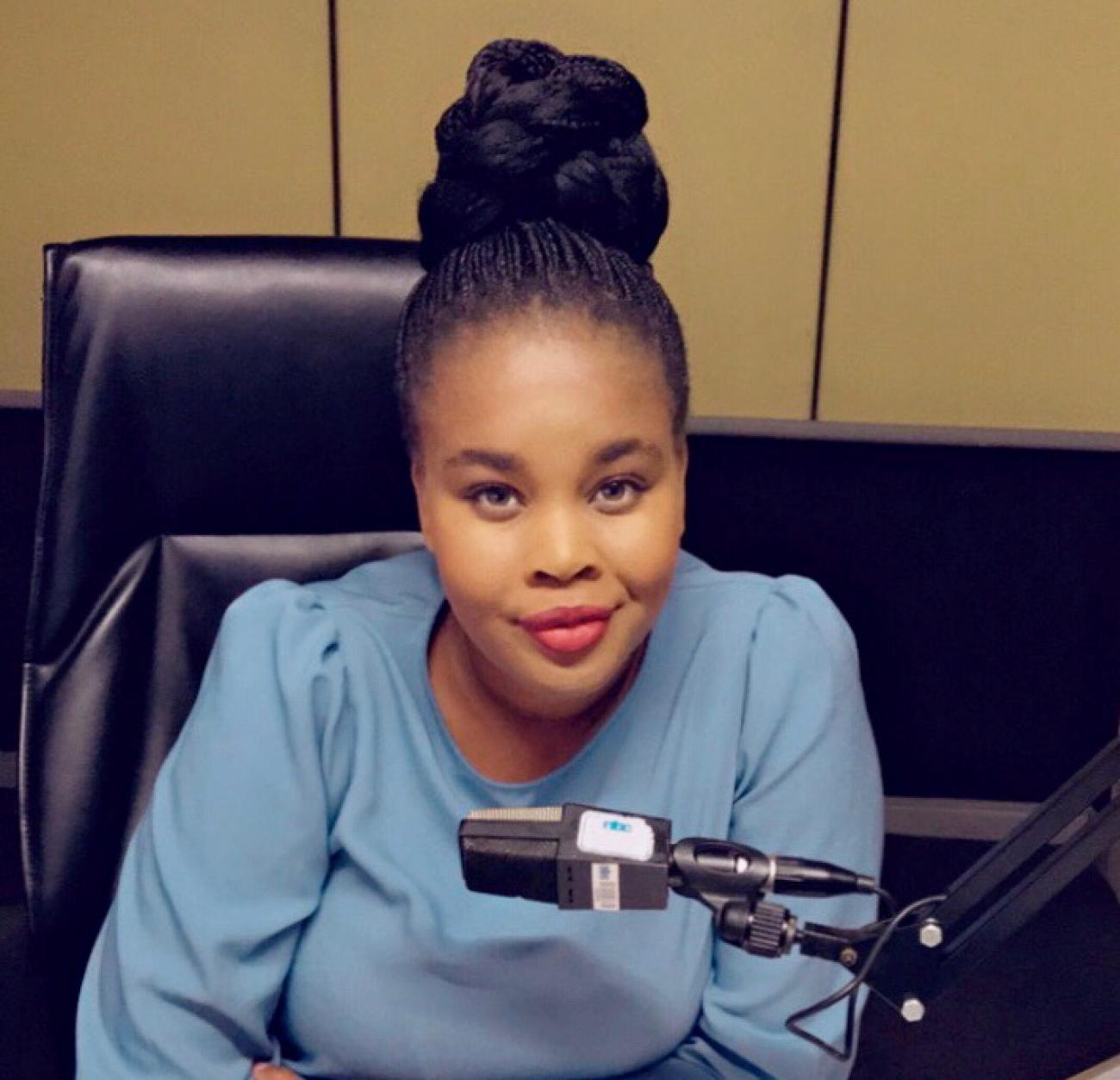Weak, emotional, soft and inferior. These are common terms used to describe women-and only women- while words, like strong, superior and committed, are used to describe men. These language biases prove to have measurable impacts on our daily lives.
Elmarie Kapunda, a 34 year old radio personality for NBC, gives us her perspective on how she manages her career to the best of her ability, while being female in the industry. Born in Omaruru, her parents instilled values and morals that have guided her as a compass through life. Elmarie later relocated to Windhoek, where she took odd jobs to help make ends meet back home. These would range from paid photographic modeling gigs to advertising product placements for big corporates. “This money that I’d get would always be shared between my tuition and sending some home” she said.
Elmarie takes pride in her job as she describes it as an information hub for the world.
"I am a security guard for one of the most important fundamental human rights, which is the Right to information. I guard this whole heartedly as correct information leads to choices that are informed and can impact daily lives"
Since the outbreak of COVID-19, radio has reclaimed its once revered position. Undeniably, 99% of the population relies on radio as a means of obtaining information. This has contributed to the realignment of the initial thought of radio degenerating. Evidently, digital media is strong, but radio and traditional media has proven its prevalence even more.
Throughout her life and work experience, Kapunda has been on the receiving end of being looked down upon for being female. “At times, I’d be the only female in the boardroom, and my boss would always sit back and let me do most of the talking. Few would respond to my boss and not me, dismissing my existence in the room, but this has never deterred me” she said.
The ratio of men to women in most industries isn’t proportional and thus, the search for women experts in fields dominated by men should be prioritized. The crucial factor that may lead to disproportionality is confidence, and a lack of thereof amongst women. “Whilst some women are forthcoming in speaking to us, many would direct us to their male counterparts, this is a true reflection of how at times we as women silently dim our light thinking we aren’t capable” declared Kapunda.
For centuries women have been seen and portrayed as the weaker, more vulnerable gender. They have been rendered inferior, not necessarily with their consent, but with considerable help from social norms. The word “power” takes on different dimensions when it is viewed through a gendered lens. This term has denied women their capabilities for a long time. In this regard, it is vital to evoke, instill and reassure women that they possess great knowledge and power within themselves. Despite the unprecedented COVID-19, more women are at the forefront of speaking on various topics, and the pandemic has become a blessing in disguise.
Kapunda states that the most rewarding aspect of working for NBC is that, the news and current affairs department consists of mostly women, in supervisory positions and in the RCA department. There are no gender roles in the department that she works for.
In the modern world we live in, women are working and succeeding in occupations long seen as the province of men: as scientists, welders, bricklayers, engineers, mechanics etc. “Break the cycle of dismissing the daily hardships that women face on a daily basis, inclusive of inhuman acts of violence or dismissal of their existence” asserted Kapunda.
A number of phenomenal women have paved the way for women to take back their power. The chant of “Women empowerment” is the anthem for equality.




